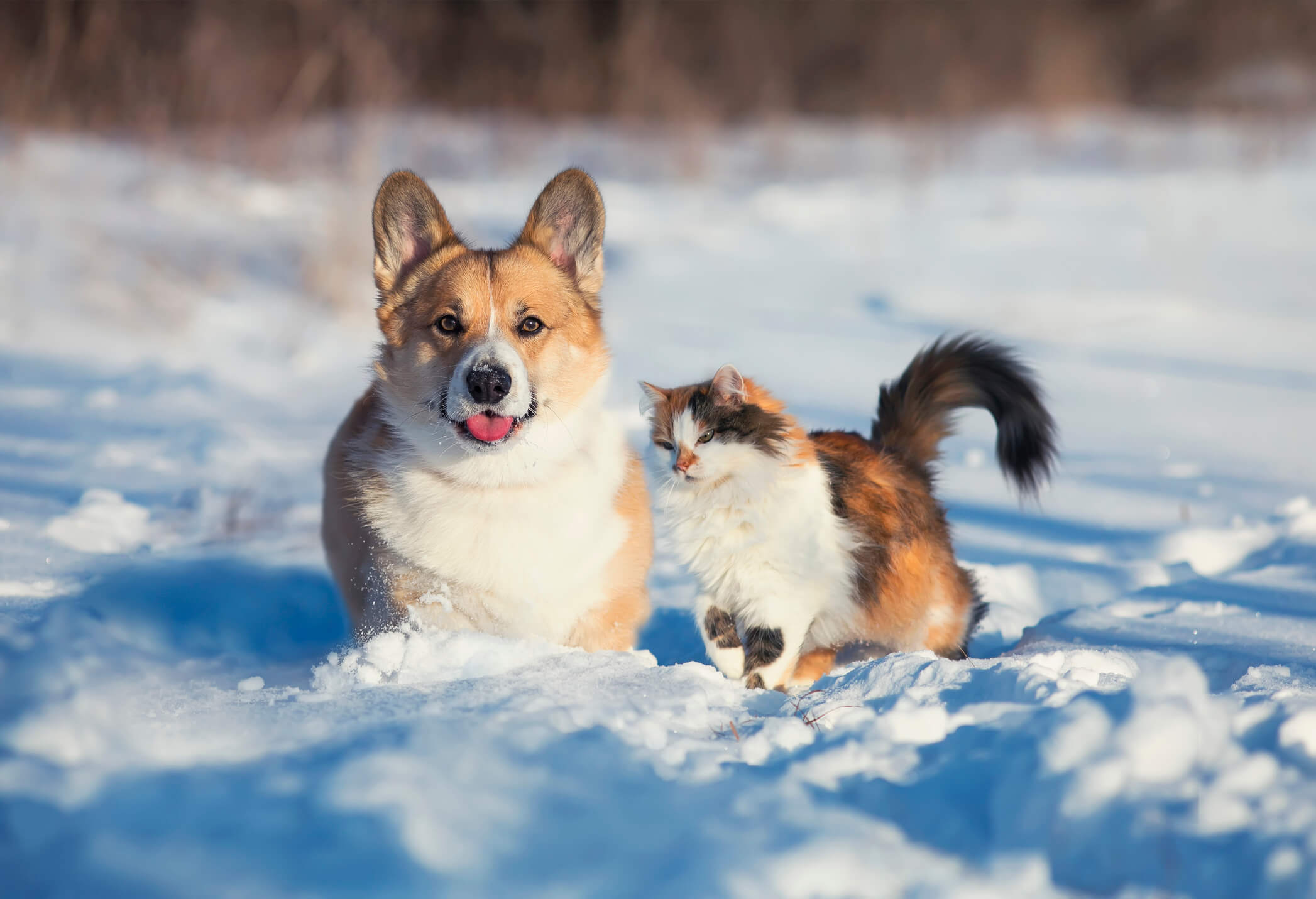
10 Tips for Preparing Your Pets for Winter
It’s that time of year again! The temperatures are dropping, neighbors are salting their driveways, and the days are getting shorter. Many pet parents are so focused on acclimating themselves to the cold, they don’t stop to wonder if their furry friends also need winter protection.
Despite their fluffy coats, pets seek solace from the cold, too. And they need your help! Prepare your pets for winter by building these tips into their daily routine.
- Make cozy indoor nooks: During winter, cats and dogs spend most of their time indoors to avoid the cold temperatures. Despite this protection from the harsh elements, our furry friends still need ways to keep warm. Set up a blanket pile for your pet to burrow into or place a heating pad beneath their preferred napping spot. Small dog breeds, pets with thin fur and some cats might also appreciate a cute, cozy sweater!
- Maintain the furnace: Cats and dogs rely on the comforts of domestic life to make it through the winter. The last thing you want is the furnace puttering out at the coldest time of year! Before winter hits, schedule a visit from your local HVAC contractor to make sure the furnace is in top shape for the cold months ahead.
- Check for fleas: Winter is the time to hunker down and cuddle your furry friend on the couch. For some unlucky pet owners, jumping black dots are a telltale sign they’ve got company! Prepare for winter by checking your pets and house for fleas. One method is to walk around carpeted areas wearing white, knee-high socks because it’ll be easier to see if some fleas hitch a ride. Fleas can survive through winter, so make sure your pet is on a year-round flea and tick treatment plan.
- Try an immunity supplement: Cold weather dampens your pet’s immune system. This means they’re more susceptible to getting sick in winter. Keep your cat or dog healthy all year long by incorporating an immunity supplement into their diet. One capsule a day can help stave off colds and respiratory infections. As always, consult your vet before adding supplements to your pet’s diet.
- Balance exercise with food intake: Many dog owners are reluctant to brave the cold. Summer activities like long hikes, trips to the dog park and playing with a Frisbee are replaced with staying indoors. As a result, many pups get less exercise in winter. Make sure you’re matching the dog’s food intake with their exercise level. Dogs gain weight when they exercise less but eat the same amount of food they did during summer.
- Switch up their walking schedule: A lot of dogs can’t tolerate staying out in the cold for too long. Of course, cutting out walks altogether isn’t an option! Break long walks into shorter, more frequent ones so they’re still getting consistent exercise. Go outside during peak hours of the day in order to catch the warmest temperatures.
- Put on a jacket and booties: Before heading out the door, consider outfitting your pup with some winter gear. Jackets are a must for small breeds and dogs with thin coats. Booties prevent your dog’s paws from becoming dry and cracked by avoiding contact with the snow and ice. They also guard against frostbite and chemical de-icers.
- Buy reflective gear: There’s less sunlight in winter, which means your pup might have to go for walks or do their business after dark. When your pup goes outside at night, switch to a reflective collar, leash or harness. These gadgets make dogs more visible to oncoming cars and can help you spot them in the yard.
- Dry their paws with a towel: If your pet absolutely refuses to wear booties, clean off their paws when they come back into the house. A clean, dry towel can remove chunks of frozen snow and chemical de-icers that are extremely toxic to pets.
- Brush your pet: Grooming is even more important during winter. Cats and dogs shed a ton in order to grow their winter coat. Daily brushings help remove dead hair to avoid mats and maintain a luscious, shiny appearance. Brushing evenly distributes natural oils throughout the fur, which also moisturizes their skin despite the drying effects of winter.

As the seasons change, so will your pet’s daily routine. A few small adjustments to their diet, exercise schedule and hygiene can keep your pet healthy and warm during the cold months. Humans aren’t the only ones who adapt to the cold—fur babies need our help to do the same!


